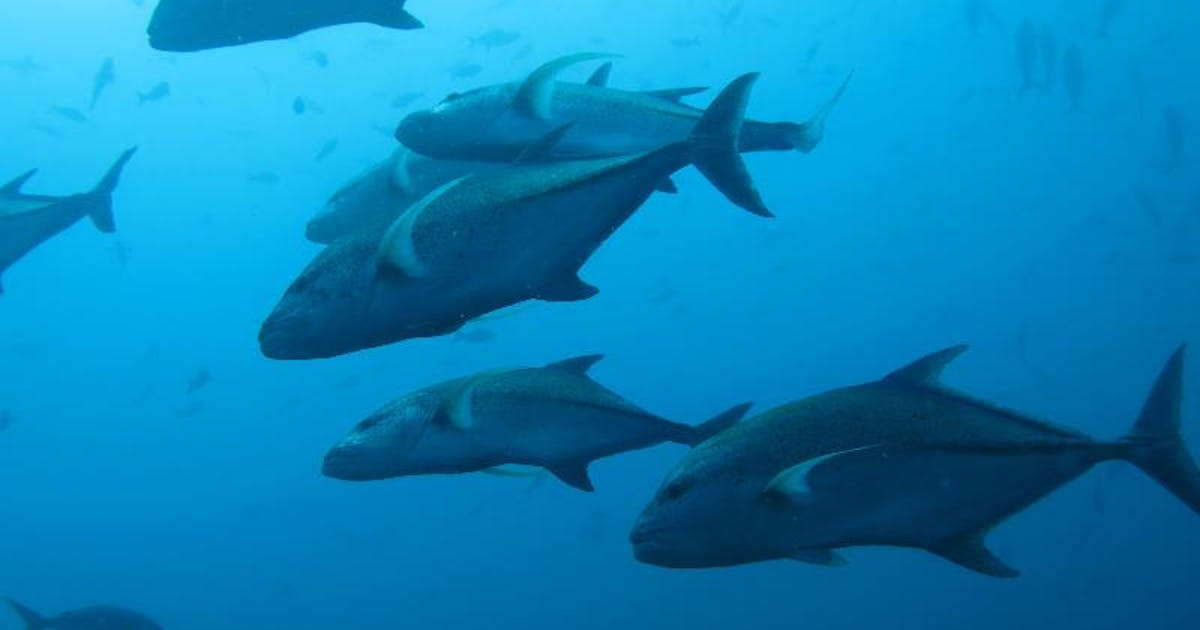Editor’s note: What does it take for a fish to reach your dinner plate? More steps than you might think.
In restaurants across Colombia, diners now have access to sustainably caught fish thanks to EcoGourmet, a program that connects small-scale fishers directly with local restaurants. In this piece, María Claudia Díazgranados, director of marine and community incentives for CI Colombia, explains how EcoGourmet is boosting income for local fishers while ensuring restaurants (and diners) get a steady supply of fish.
For many of us, our connection to food comes mainly through buying groceries at the closest market, without requiring an understanding of the steps that make that purchase possible. But what does it take for fish that we buy, for example, to get from boat to market to plate?
Fish are typically caught by one of two ways: in industrial or small-scale fisheries. The industrial fishing industry catches, processes, stores and transports more fish. On the other hand, small-scale, or artisanal fisheries, employ thousands of independent fishers, many of whom live along Colombia’s coast. These artisanal fishers make their living by fishing for several hours a day and then bringing their catch to market. They don’t have the ability to catch as much fish as industrial fisheries do, which makes it a challenge for them to compete with these big companies.
That’s where EcoGourmet comes in. EcoGourmet is helping Colombia’s small-scale fishers use sustainable methods and providing them with access to regional and national markets.
Formed in 2012, the program is an alliance between CI Colombia and Fondo Acción, a Colombian NGO. The initiative enables fishers to receive higher pay for fresh, sustainably caught fish, which reduces poverty and enables consumers to know where their fish has come from.
A key part of the EcoGourmet program? Training fishers on the best practices to conserve the environment, and promoting equitable and transparent commercial alliances, which can be difficult goals to balance when they interfere with the fishers’ livelihoods.
“The hardest part was when fishers arrived with fish that were not of the permitted size and we couldn’t receive them, knowing that they [catch these fish] to provide for their families — and that you see the industrial fishers catching every size,” said Luis Antonio Olaya, member of Red de frío, an EcoGourmet partner. “Step by step, the fishers realized that it was mandatory to comply with the requirements — not only to sell the best fish, but also to make sure fish keep existing in the area.”
As more fishers and consumers learn about the program — through word of mouth, flyers, posters and placemats in restaurants, and videos on social media, EcoGourmet is growing across Colombia. ToToday, it supports five community organizations across the Pacific coast, with plans to grow the network to include two more organizations. Restaurants in both Cali and Bogotá purchase the fish — in the capital, which sits in the country’s interior, this means sustainably caught fish is getting to consumers beyond Colombia’s coastlines. In the Gorgona National Protected Area, an island in the Colombian Pacific rich in biodiversity, EcoGourmet is working directly with the tourist shops to ensure the fish and marine products are sustainably caught.
EcoGourmet buys the fish directly from the fisher organizations first, providing economic alternatives for local communities. And since its founding five years ago, EcoGourmet has benefited more than 3,000 fishers by helping them fair prices for their sustainably caught fish.
At the end of the day, said Olaya, EcoGourmet helps the fishers acquire another perspective, and teaches all of us — both fishers and consumers — to be more responsible.
María Claudia Díazgranados is the director of marine and community incentives for CI Colombia.
Want to read more stories like this? Sign up for email updates. Donate to Conservation International.
Cover image: Scuba diving in Pacific Ocean, off coast of Malpelo island, Colombia. (Edgardo Ochoa / Conservation International)
Further reading

